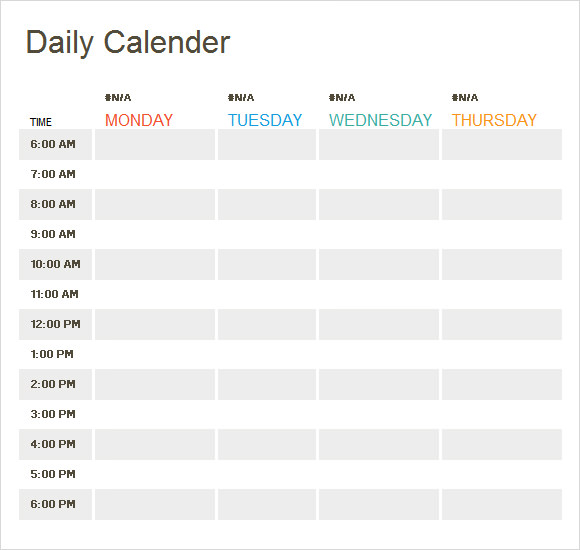


Being aware of all the commitments you've already made can allow you to set more realistic goals for new tasks. Understand your capabilities: it's often easy to take on too much. Stay focused: having clearly defined tasks, times and deadlines can help you avoid distractions and limit procrastination. Here are some other ways that creating a daily schedule can help you: Learning to stick to your schedule consistently can also improve your time-management and organisational skills, allowing you to plan and prioritise more effectively. What are the benefits of creating a daily schedule?Ĭreating a schedule for your day has a range of benefits, as it can help you use your time more efficiently. Regardless of your needs, you can format a schedule that works for you. You may also choose to create a schedule that maps out your daily routine, from your meals to your exercise regime. You can use it professionally to organise meetings, projects and work-related tasks or to keep track of your personal commitments such as meeting friends or family events. It allows you to list intended times that events take place and serves as a reminder of tasks that need completing. What is a daily schedule?Ī daily schedule is a way of methodically planning the events of your day. In this article, we explain the benefits of a daily schedule, how you can create one of your own and provide tips to make it easier to stick with long-term to make managing your life a lot easier. Creating a daily schedule can help alleviate some stressors from your day-to-day work. When managing a busy work schedule alongside personal commitments and a desire to make time for ourselves, it can be difficult to get everything done. One of the most effective tools for managing your time and combatting the temptation to procrastinate is to create a daily schedule.


 0 kommentar(er)
0 kommentar(er)
